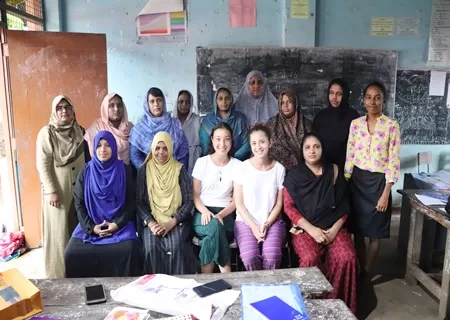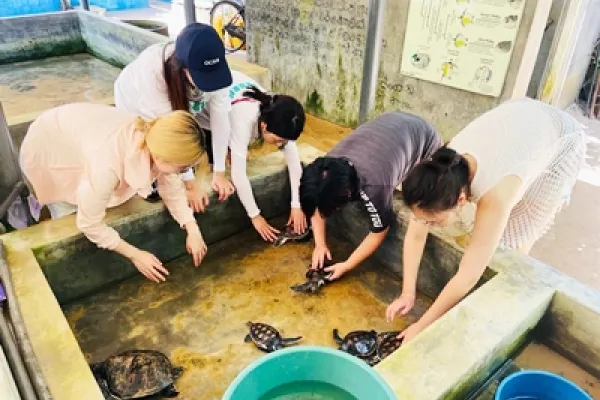Overview
L'obiettivo principale di questo progetto è quello di dotare le donne povere delle zone rurali dello Sri Lanka di competenze linguistiche e di vita molto necessarie in inglese, in modo che possano crescere personalmente, aumentare la loro sicurezza e autostima, interagire con le loro famiglie e i loro figli in modo più efficace a casa e diventare più occupabili in futuro. Per una serie di ragioni sociali ed economiche, la maggior parte di queste donne non ha mai avuto la possibilità di acquisire queste competenze e intraprendere una carriera di successo; pertanto, è fondamentale che questo servizio venga reso loro disponibile per supportare il loro sviluppo e benessere.
Contesto del programma
In questo progetto, lavoriamo in genere con donne rurali dello Sri Lanka che sono tra le fasce più vulnerabili della società. La situazione di queste donne è stata fortemente influenzata dalla cultura tradizionale, dalla storia coloniale e dalle politiche post-indipendenza.
Non è un segreto che gli stereotipi di genere abbiano un impatto negativo sulle donne, in particolare nelle comunità rurali dei paesi in via di sviluppo come lo Sri Lanka. Qui le donne continuano a essere viste come "mogli dipendenti" o "guadagni supplementari" nella migliore delle ipotesi. Le responsabilità familiari tradizionali di una donna, in particolare come madre / moglie / casalinga, la limitano nella scelta del lavoro, così come gli atteggiamenti della sua famiglia e della società verso certi tipi di lavoro.
La maggior parte delle donne in Sri Lanka sa leggere e scrivere in singalese e/o tamil, le due principali lingue locali del paese. Questo perché negli anni '50, l'istruzione primaria, secondaria e terziaria, inclusa l'istruzione universitaria, è stata resa gratuita e convertita dall'inglese alle lingue locali. Ciò ha portato a una rapida espansione delle opportunità educative tra le donne. I genitori non hanno più dovuto scegliere se investire nell'istruzione dei figli maschi o femmine. I tassi di partecipazione all'istruzione sono aumentati rapidamente tra le donne e le differenze di genere sono diminuite drasticamente negli anni '70. Nonostante ciò, i tassi di abbandono scolastico erano più alti tra le donne, soprattutto nei quartieri, negli insediamenti e nei villaggi a basso reddito.
Nel 1983, scoppiò una massiccia guerra civile in Sri Lanka, che durò 26 anni e terminò nel 2009. Ciò portò a notevoli dislocazioni sociali e traumi. La spesa del settore sociale fu ridotta dall'aumento dei costi finanziari della guerra alla fine degli anni '80 e '90. Di conseguenza, ci fu un deterioramento della qualità dei servizi sanitari ed educativi che ebbe un impatto negativo sulla qualità della vita delle donne e delle loro famiglie. Molte donne furono spinte fuori da un impiego stabile nel settore formale verso attività economiche marginali e verso un lavoro autonomo non sostenibile. Vari studi hanno dimostrato che per le donne rurali povere, la qualità della vita e le condizioni di lavoro si deteriorarono maggiormente durante quei tre decenni e le spinsero verso la disoccupazione o lavori poco qualificati. Anche lo tsunami del 2004 fu determinante nel causare danni su larga scala alla regione, che peggiorarono ulteriormente le prospettive di occupazione e la qualità della vita delle donne e delle loro famiglie.
L'emancipazione femminile può assumere molte forme e abbiamo scelto di concentrarci sulla fornitura di istruzione in inglese a livello di base come strumento per dotare queste donne di maggiore sicurezza e renderle più occupabili (in particolare nel crescente settore del turismo internazionale in cui avere una conoscenza pratica dell'inglese è più o meno obbligatorio per ottenere un impiego dignitoso), sviluppando ulteriormente le loro competenze di base di vita e linguistiche. La maggior parte delle donne che partecipano a questo progetto ha avuto poca o nessuna esperienza o familiarità con la lingua inglese prima di unirsi al progetto. Provengono da famiglie a basso reddito che hanno sofferto di più durante i periodi turbolenti del recente passato. Molte di loro hanno avuto matrimoni precoci e non hanno mai avuto l'opportunità di intraprendere una carriera praticabile.
Orario di lavoro volontario
Orario di lavoro volontario
- Sabato: Arrivo + Visita della casa + Sessione di formazione iniziale (a condizione che i partecipanti arrivino nel pomeriggio, altrimenti si svolge la domenica)
- Domenica: giro di familiarizzazione del quartiere
- Da lunedì a venerdì: volontariato
- Colazione: 06:30 - 08:30
- Pranzo: dalle 12:30 alle 13:30
- Pianificazione della lezione: 13:00-15:00
- Sessioni per donne: dal lunedì al giovedì dalle 15:00 alle 17:30
- Venerdì: Pianificazione per lunedì
- Cena: 18:30 - 19:45
Nota: il programma può variare a seconda delle circostanze locali e può essere modificato dai coordinatori in caso di circostanze inevitabili.
Ruoli e responsabilità dei volontari
Ruoli e responsabilità dei volontari
Come volontario per il Women Empowerment Project, sarai coinvolto nei seguenti compiti:
Insegnamento dell'inglese a livello base alle donne in gruppi di piccole e medie dimensioni nel pomeriggio
Preparati per ogni sessione concentrandoti sulle esigenze specifiche del gruppo
Aiutare lo staff nella pianificazione delle lezioni e anche trovare modi creativi per insegnare
Concentrarsi maggiormente sull'inglese comunicativo (piuttosto che sulla lettura e sulla scrittura) in modo che la loro grammatica venga perfezionata
Utilizzare diverse tecniche, come il gioco di ruolo, per massimizzare l'impatto pratico di questa iniziativa
Le sessioni di insegnamento possono essere tenute al mattino o al pomeriggio, per circa 2-3 ore ciascuna. Ogni sessione sarà condotta in un ambiente affiatato e confortevole con piccoli gruppi di 5-20 donne rurali. Le lezioni sono programmate 4 giorni alla settimana e un giorno specifico è dedicato alla pianificazione delle lezioni in cui i volontari pianificano le sessioni e preparano in anticipo il materiale didattico necessario. È importante adattarsi alle circostanze del terreno ed essere flessibili. Il coordinatore dell'istruzione accompagnerà i volontari al sito del progetto e li guiderà durante le lezioni e la pianificazione delle lezioni.
I volontari possono anche ricevere aiuto dal nostro staff per pianificare argomenti/lezioni e modi creativi di insegnare, ma la pianificazione delle lezioni e l'insegnamento sono in ultima analisi responsabilità dei volontari stessi. Le lezioni si concentreranno maggiormente sull'inglese parlato (per massimizzare l'impatto) e includeranno anche sessioni di grammatica di base. Utilizziamo varie tecniche, come il gioco di ruolo, per massimizzare l'impatto pratico di questa iniziativa.
Project Requirement
Project Requirement
I volontari che aderiscono al Women Empowerment Program devono avere un'età compresa tra 18 e 60 anni al momento dell'adesione al progetto. Devi avere una mente aperta e un atteggiamento flessibile per lavorare in un ambiente nuovo e diverso. Il volontario deve portare energia ed entusiasmo per fare la differenza. I partecipanti devono essere in forma e sani al momento dell'adesione al programma. I partecipanti non devono avere condanne penali e devono fornire un rapporto di controllo dei precedenti penali pulito. Solo le volontarie donne sono accettate in questo programma.
Schedule a Google Meet with a Program Advisor
Interested in our programs? We're here to provide expert guidance
- Get Detailed Info
- 20 min One -on-One meeting
- Get expert advise
- Application Guidance
Photo Gallery
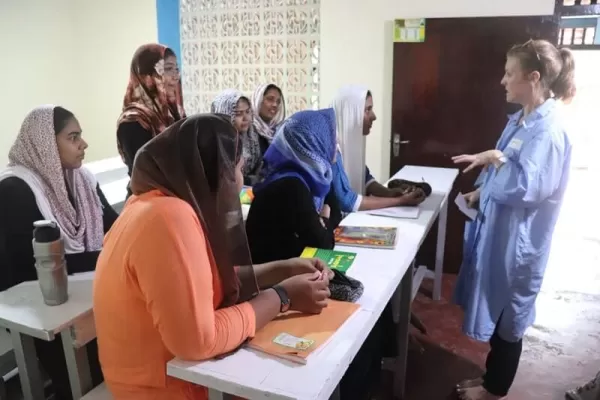
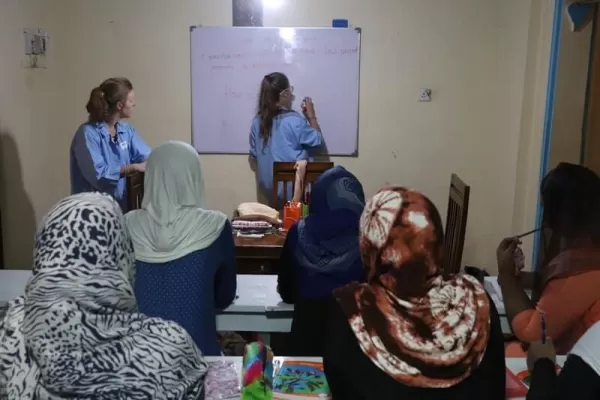
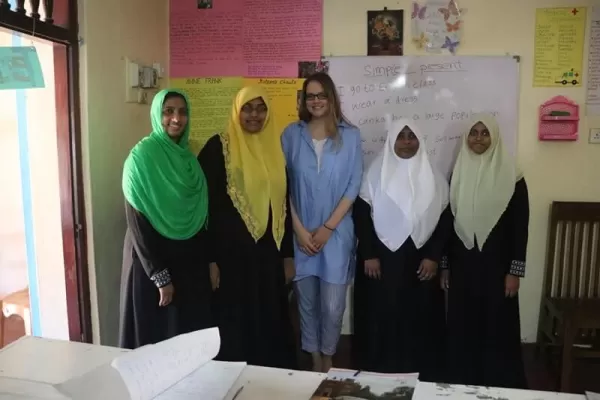
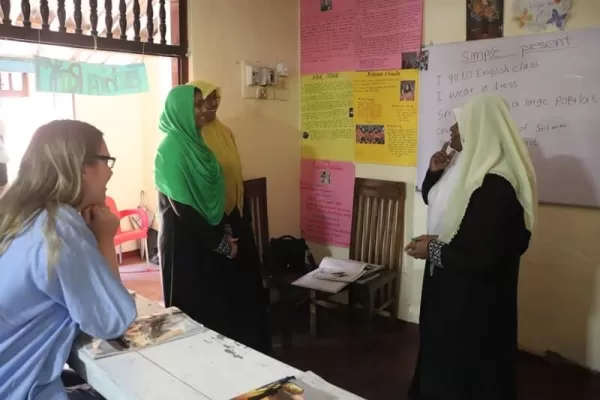
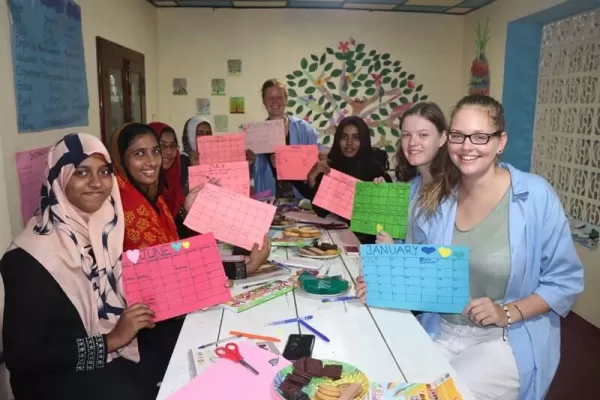
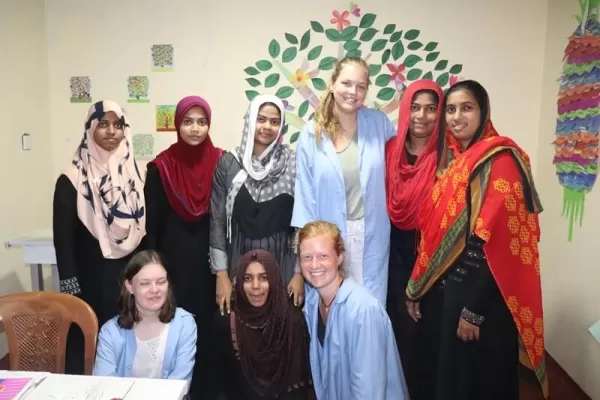
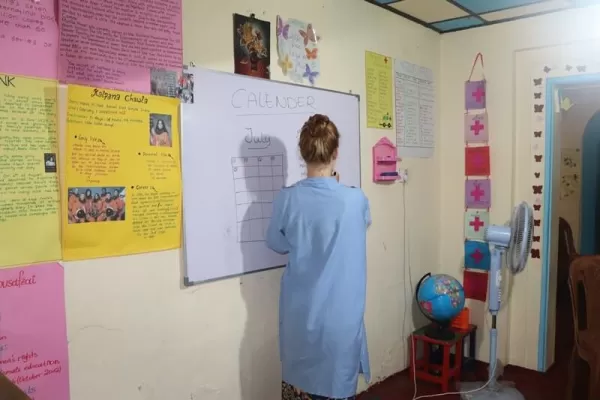

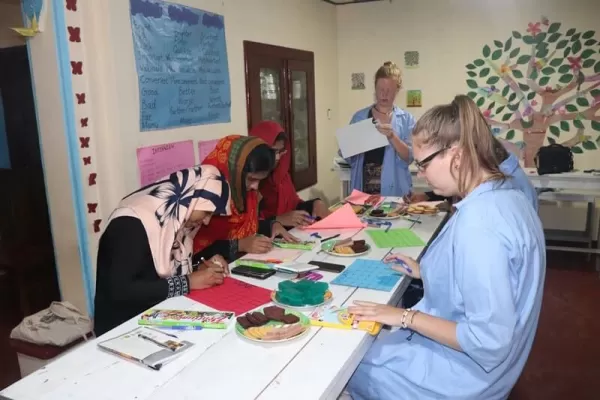
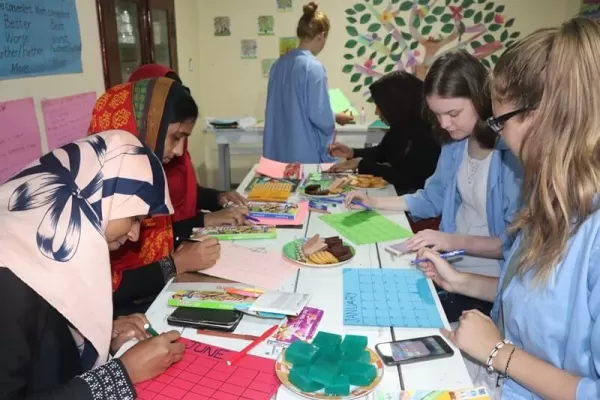
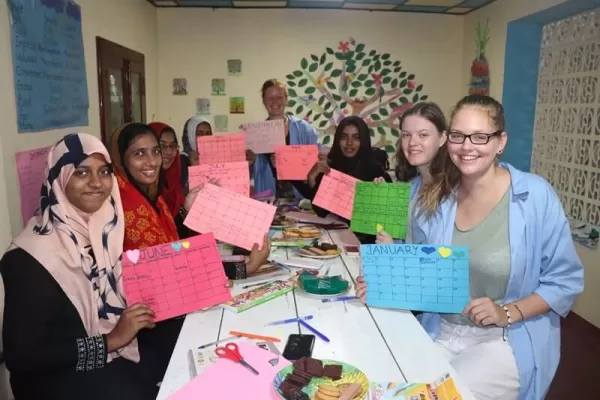
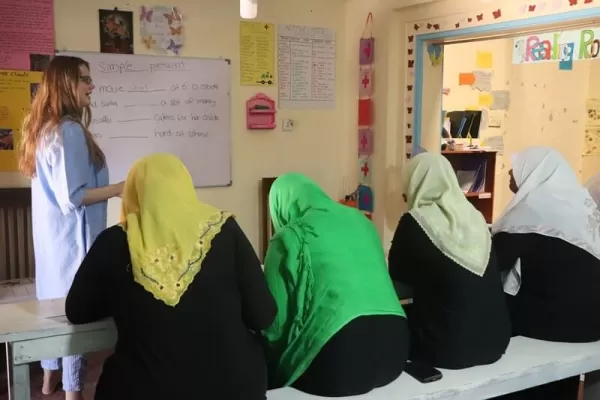
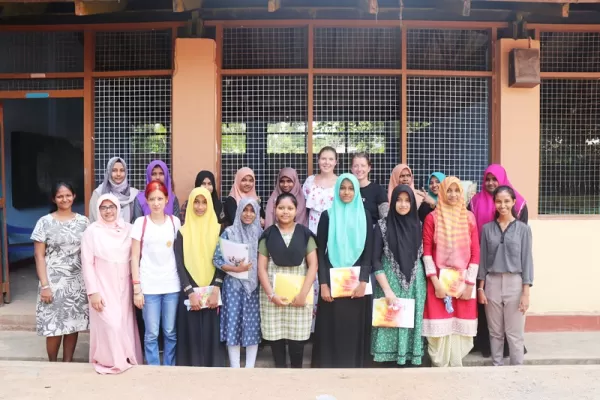
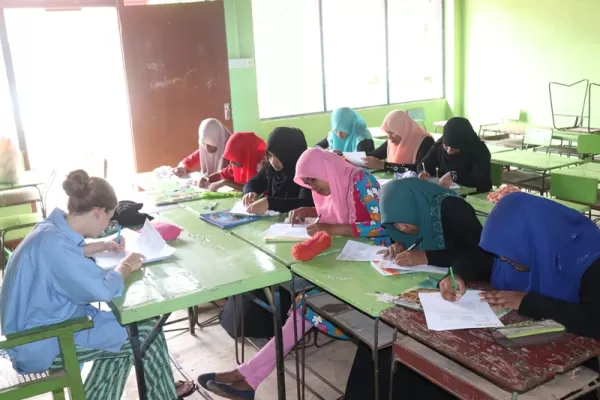
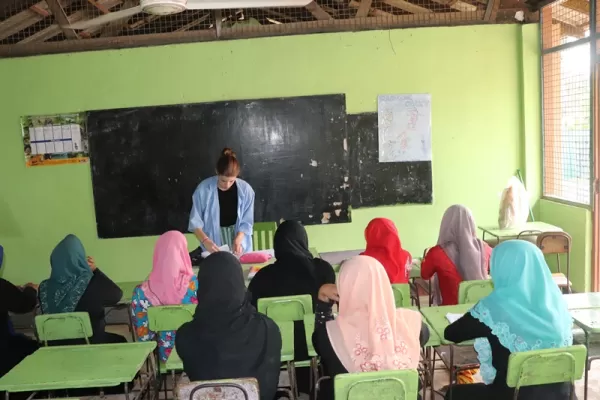
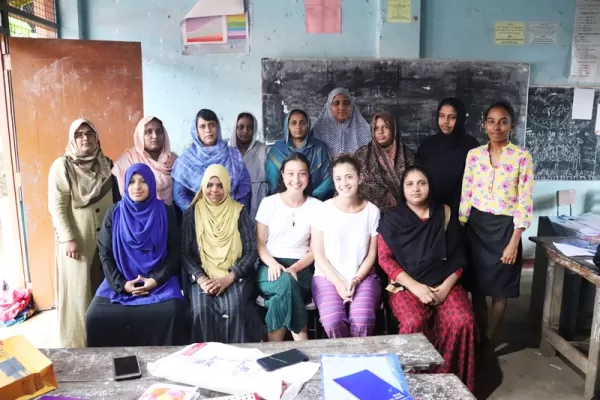
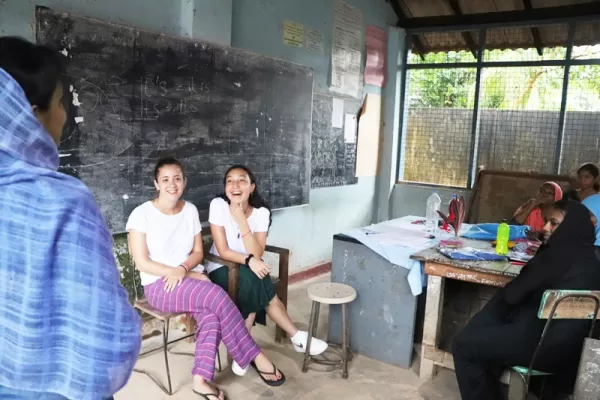
Living
Living

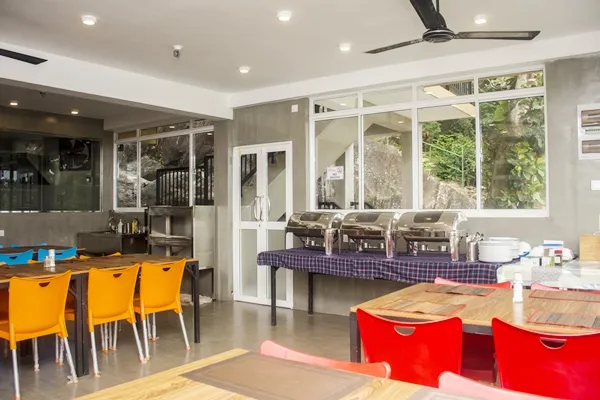
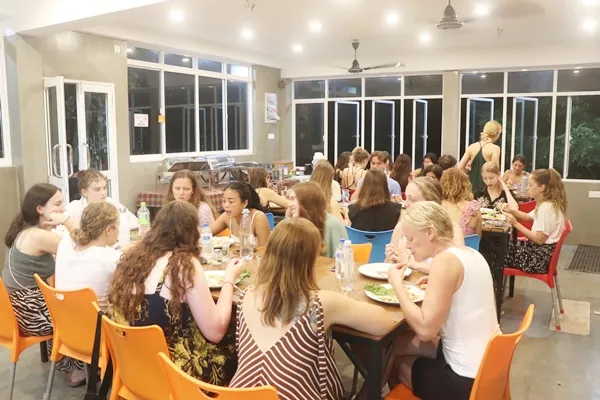
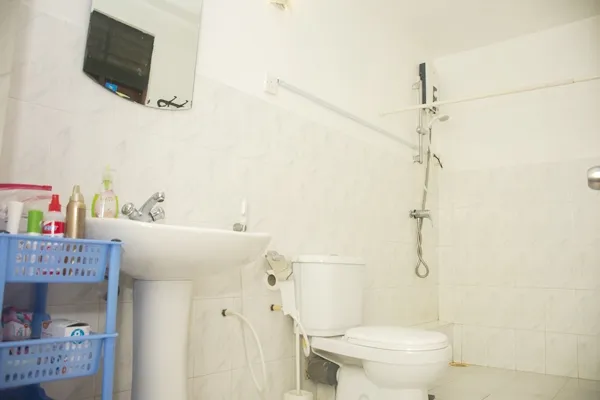
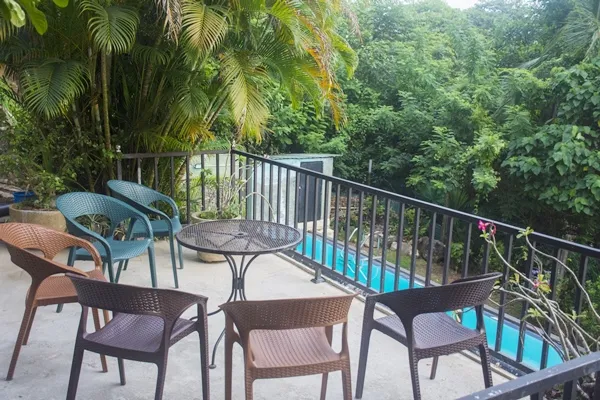
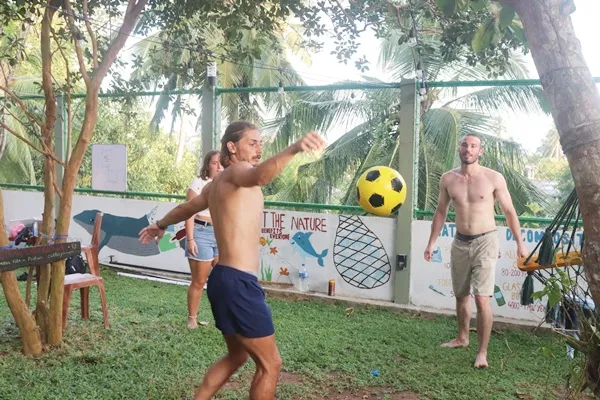
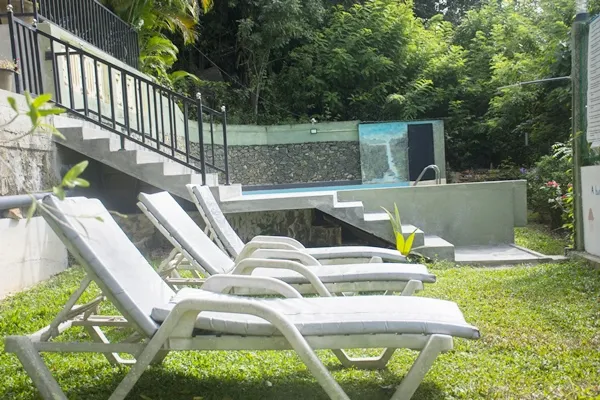
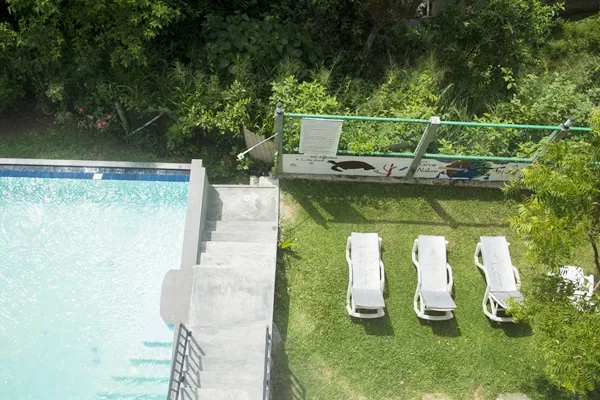
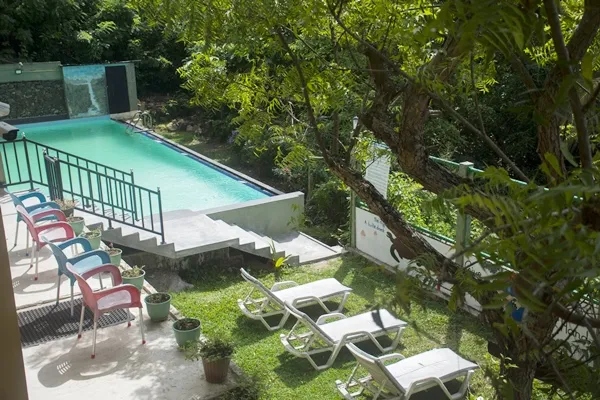
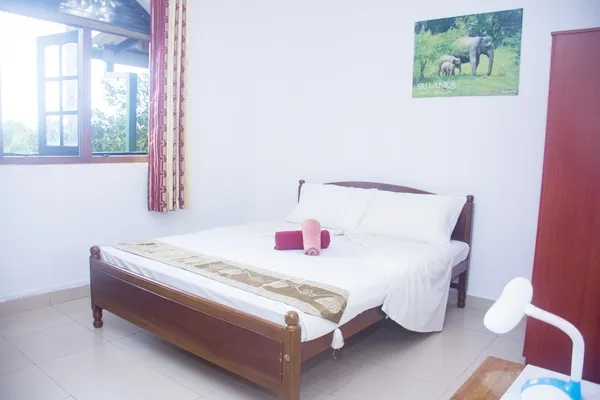




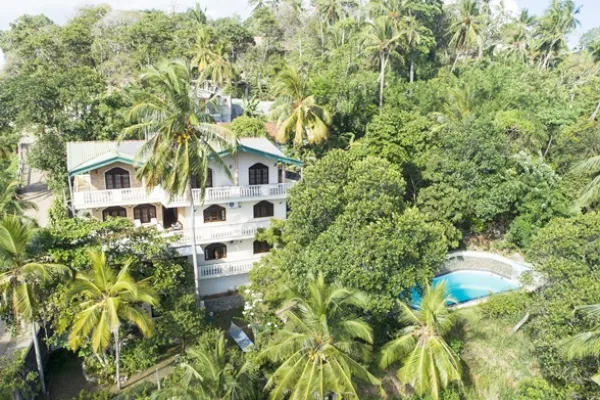

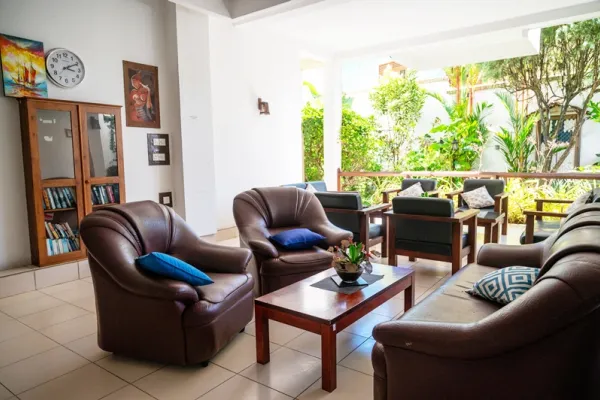
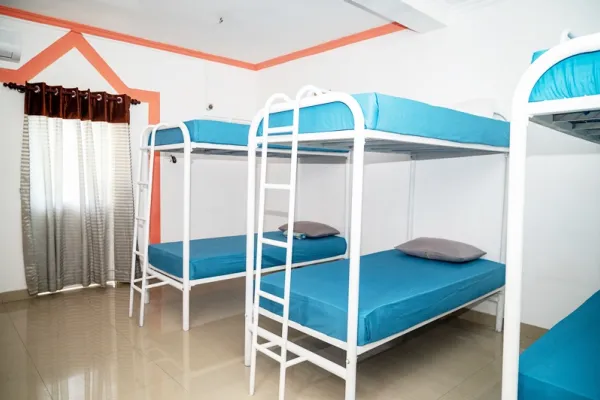
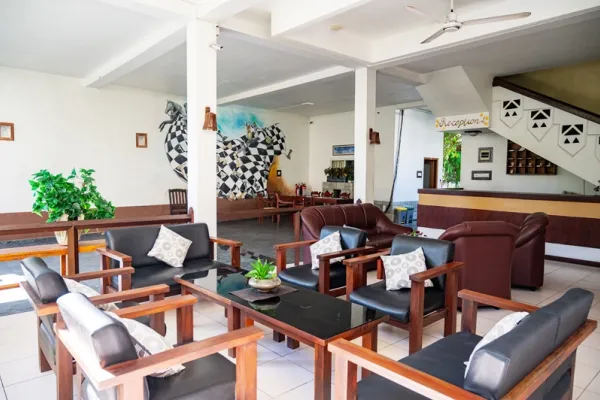
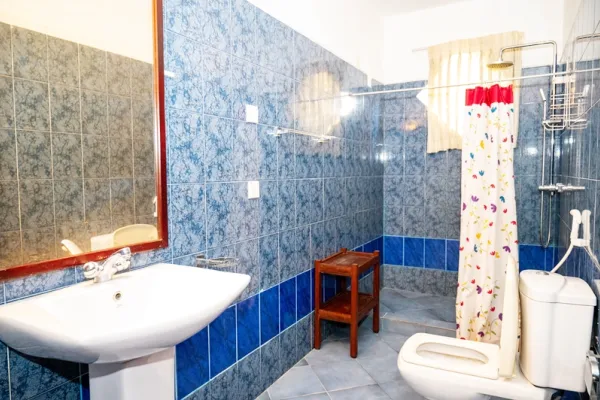
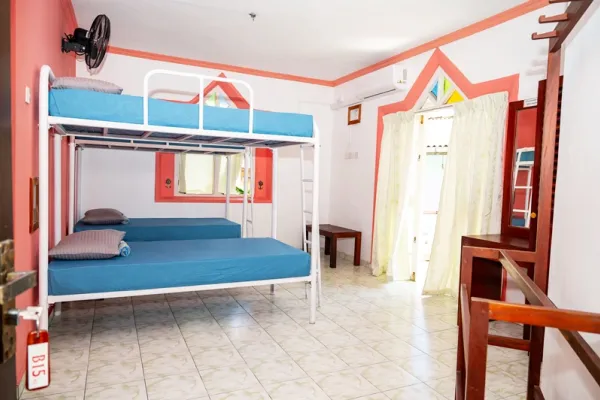
Dates
Dates
January
18
25
February
01
08
15
22
March
01
08
15
22
29
April
19
26
May
03
10
17
24
31
June
07
14
21
28
July
05
12
19
26
August
02
09
16
23
30
September
06
13
20
27
October
04
11
18
25
November
01
January
17
24
31
February
07
14
21
28
March
07
14
21
28
April
04
11
18
25
May
02
09
16
23
30
June
06
13
20
27
July
04
11
18
25
August
01
08
15
22
29
September
05
12
19
26
October
03
10
17
24
31
Available
Filling Fast
Booked Out
Costs
| Duration |
Program Fee
|
Choose your currency
|
|---|---|---|
| 2 Weeks | $835 | |
| 3 Weeks | $995 | |
| 4 Weeks | $1155 | |
| 5 Weeks | $1315 | |
| 6 Weeks | $1475 | |
| 7 Weeks | $1635 | |
| 8 Weeks | $1795 | |
| Extra Week | $250 |
Please Note: An application fee of is charged over and above the program fee as an application payment. A 5% international banking fee is charged for credit card payments of program fee in USD/AUD.
Per cosa stai pagando?
- Assistenza e supporto 24 ore su 24 da parte del personale
- Informazioni complete prima della partenza
- Alloggi dedicati ai volontari con WiFi (camere condivise)
- Trasferimento aeroportuale condiviso all'arrivo in fasce orarie designate al mattino o al pomeriggio
- Orientamento e formazione all'arrivo
- Colazione, pranzo e cena tutti i giorni
- Posizionamento garantito del progetto
- Trasporto locale verso progetti in furgone privato con aria condizionata o tuk tuk
- Team operativo bilingue esperto sul campo
- Supporto del personale dedicato dalle 6:00 alle 20:00 tutti i giorni
- Supporto di emergenza locale 24 ore su 24, 7 giorni su 7
- Lezione settimanale di yoga sulla terrazza panoramica
- Serate cinema settimanali su grande schermo con proiettore
- Escursione mensile in bicicletta tra le risaie e i villaggi locali
- Cena speciale mensile con barbecue
- Assicurazione di viaggio e medica (disponibile a un costo aggiuntivo)
- Certificato di partecipazione (su richiesta)
Cosa NON è incluso?
- Tassa di visto
- Tariffa aerea internazionale
- Trasferimenti di andata e ritorno dall'aeroporto di Galle all'aeroporto di Colombo (disponibili a costi aggiuntivi)
- Vaccinazioni
- Eventuali spese personali
- Escursioni e viaggi locali aggiuntivi
- Costi per l'upgrade della camera privata
- Costi per notti aggiuntive in struttura
FAQ's
Application and Program Details
-
When should I apply for the volunteer programs in Sri Lanka?
-
As we have limited spots available in our programs and we serve on first come first basis, it is recommended that potential volunteers book their programs well in advance to get confirmed placements. You can book your slot by filling the application form online and pay the application fee. You can pay your program fee later and also, in installments. However, the complete payment should be made 45 days prior to the starting of the program. If you are volunteering in a group, you can also fill a group application form.
-
Does VolSol provides with a reference or a certificate after program completion?
-
Yes, we will provide you with the Certificate after successful completion of your program. The certificate is provided on request.
-
For how many hours will I volunteer every day?
-
Volunteers usually work for 5 to 6 hours a day depending on their program. However, volunteers need to be flexible, open minded and understand that work requirements can alter at times.
-
How long will it take to process my application? Will my application be accepted?
-
After you complete your application, your personalized ‘My Account’ will be activated.You will need to upload your CV/Resume along with your photo in the same. Our backend team and the placement site takes around 10-12 days to review your application. After we review your CV and documents, your booking is confirmed and booking confirmation is updated in your ‘My Account’. Some projects need a mandatory criminal background check and the same is mentioned in the project info of your program. Approval of your application depends on your qualification and eligibility criteria for each project.
-
When do I need to arrive in Sri Lanka for my program? What will happen once I arrive in the country ?
-
All volunteers need to arrive at Bandaranaike International Airport (CMB) in Colombo, Sri Lanka, on the starting date of their project. Volunteers are picked from the airport by the local coordinator or representative and are transferred to their accommodations. Accommodation will be provided in the volunteer house located near your placements.
A short orientation is given after arrival about the city and placements. The volunteers are also taken for a short tour of Colombo before they start with their program. However, the tour depends on the arrival time of your flight. -
Are there any necessary requirements to participate in the Sri Lankan volunteer programs?
-
Below are the necessary requirements to participate in the Sri Lankan volunteer projects:
The minimum age requirement for the programs in Sri Lanka is 17 years.
Volunteers participating in the Medical Program should be at least 18-year-old.
Volunteers need to have an open mind and flexible attitude for working in a new and different environment. They should bring energy and enthusiasm to make a difference.
The participant must be in good health. -
Does VolSol provides discount if I choose more than one program or if I am a returning volunteer?
-
If you are planning to come for multiple programs in your trip, you will have to pay the application fees just once. Your application fee is valid for a year's time ( from the date of application). You will not have to pay the application fees again if you come within the mentioned time frame.
For our returning volunteers, $50 discount is provided for the application fee for their next VolSol program. -
Can I volunteer as part of a group?
-
We encourage our participants to volunteer in a group. We take special care in providing you a placement and also customize your itinerary to make sure you get exactly what you are looking for. Also, we can design special group programs for groups of 5 or more. Our programs are designed to be safe, affordable and offer a great group volunteering experience to the volunteers.
In our experience of more than 12+ years, we have enabled and facilitated volunteer program placements for college groups, university groups, high school groups, group of families, group of couples as well as groups of colleagues.
Flights and Visa
-
What are the recommended airlines to fly to Sri Lanka ?
-
The Bandaranaike International Airport (CMB) in Colombo is well connected with all major airports across the globe and flights are easily available. The recommended airlines are:
Srilankan Airlines
Air India
Mihin Lanka
Spicejet
Emirates
There are frequent in-country flights from Colombo to Galle and Kegalle as well. -
Will Volunteering Solutions help with Visa?
-
Volunteers traveling to Sri Lanka need to obtain an Electronic Travel Authorization (ETA) prior to their arrival or on their arrival in Sri Lanka. You can then obtain a Visa on Arrival in Sri Lanka for 30 days.
Volunteers can apply for ETA online and the approval of the same will be communicated via email.
Volunteers can be provided with the supporting documents if needed. More information will be provided once you enroll for the program.
Accommodation and Living
-
How do I get to the accommodation and the program location?
-
Your coordinator will meet you at the airport and will take you to your accommodation and introduce you to our team and other volunteers. You will then be provided with the orientation covering areas like culture, customs, safety, locations, placement, greetings, local transportation etc.
On the first day of work, the coordinator will guide you to your project site. -
Can I know more about accommodation and food arrangements?
-
Volunteers joining the programs in Galle, Sri Lanka, get to stay in the quaint Unawatuna neighborhood, overlooking the famous Unawatuna Beach and the turquoise waters of the Indian Ocean. Participants stay in one of the two volunteer homes located in close proximity to each other. The larger volunteer house has 13 bedrooms with ensuite bathrooms.Most of these rooms have ocean views! There's a private 40-foot outdoor swimming pool surrounded by tropical greenery. The house also has 3 kitchens as well as 3 living/common rooms (one each per floor), a prominent dining area, and a private outdoor garden with seating/lounging areas.
The office is located on the ground floor of the house near the main entrance – this is where the local team operate from every day. The house is located in a peaceful, nature-filled neighborhood adjacent to a small Buddhist temple (nestled away from the main tourist areas). To ensure the safety and security of the participants, there are CCTV cameras installed, and an in-house security guard for night-time surveillance. Hot water and high-speed Wi-Fi are there and you can opt for air-conditioning and laundry facilities at an additional charge.
Other than that, we also provide single/double/family private room upgrades at extra charges. The beach is just about 5 minutes walk from the stay and you can reach the Galle Fort in about 15 minutes.If you have special dietary requirements, please mention the same in your application form.
-
Are there more expenses once I arrive in Sri Lanka ?
-
Your program fee covers your accommodation, airport pick-up, orientation, pre-departure booklet, and 24x7 in country staff support. You will need to cover your personal expenses, such as traveling, telephone, the internet, shopping, sightseeing, return airport drop, weekend tours etc. You should carry around $50 - $60 per week for your basic personal expenses, such as water, local transport, phone etc.
-
Would I have free time during my program ? Can I do sightseeing during my program ?
-
Depending on your project placement, you will get free evenings and weekends to explore in and around the city. You can utilize the evening time to visit local markets and other places around your project location. Make the most of your weekends by exploring Sri Lanka to the fullest.
We encourage our volunteers to travel. We have designed various weekend tours which can be booked under the ‘Add-on Tours’ section in your ‘My Account’. Your in-country coordinator will also help you book and organize the tours once you are in Sri Lanka.
-
Where can I change my money in Sri Lanka ? Are there ATMs in Sri Lankan cities?
-
You can change money at any bank or at the airport by showing your passport. There are ATMs located all around the city (Galle, Kandy, Ambalangoda and Kegalle) as well.
-
Which all places can I explore during my trip?
-
Places like Sinharaja Forest Reserve, Rumassala Mountain, and Galle fort are major attractions in Galle, and Kegalle is a city of ancient architecture and natural beauty. Volunteers are free to plan quick getaways and explore Sri Lanka during the weekends.You can also relax at the beachside and enjoy the taste of the delicious seafood.
Health and Safety
-
How safe is Sri Lanka in general ?
-
Sri Lanka is one of the popular tropical destination in Asia and attracts travelers from all around the world. The locals are friendly and helpful as well, however, it is recommended to consult your in-country coordinators before you step out alone or go to any other locations in Sri Lanka. Also, it is recommended to be with your group whenever you venture out or stay out late in the night. It is strongly recommended to follow the safety rules and regulations provided by the in-country coordinator.
-
What immunizations/vaccinations will I need?
-
We recommend you to consult your physician or travel doctor before traveling to Sri Lanka. However, we recommend you take general vaccinations such as:
Hepatitis A and B
Typhoid -
Do I need to buy a health insurance?
-
Yes, for all volunteers it is mandatory to have a travel medical insurance. To provide the best option to our participants, we offer comprehensive insurance coverage in collaboration with a leading insurance provider.
-
Are there any other things that I need to be careful about?
-
Considering the fact that Sri Lanka is a tropical country, the weather is mostly hot and humid. For people traveling from European and North American countries, it might seem to extremely hot during the days and sultry at night. We would advise you to consume a lot of water and protect yourself from the sun in whichever way possible. Carry an umbrella.
You can consult your doctor once, before traveling to Sri Lanka.
Connect with Past Volunteers
-
How can I connect with past Volunteering Solutions Sri Lankan alumni as well as other former and current volunteers ?
-
We encourage volunteers to connect with former Volunteering Solutions participants and also other program participants joining our projects. You are recommended to join the Volunteering">https://www.facebook.com/VolunteeringSolutions/">Volunteering Solutions Facebook Page or Facebook">https://www.facebook.com/groups/volunteeringsolutions/">Facebook Group to connect with other participants and our team.
To read alumni interviews from past participants, visit the Meet">https://www.volunteeringsolutions.com/meet-a-volunteer">Meet a Volunteer section on our website


























